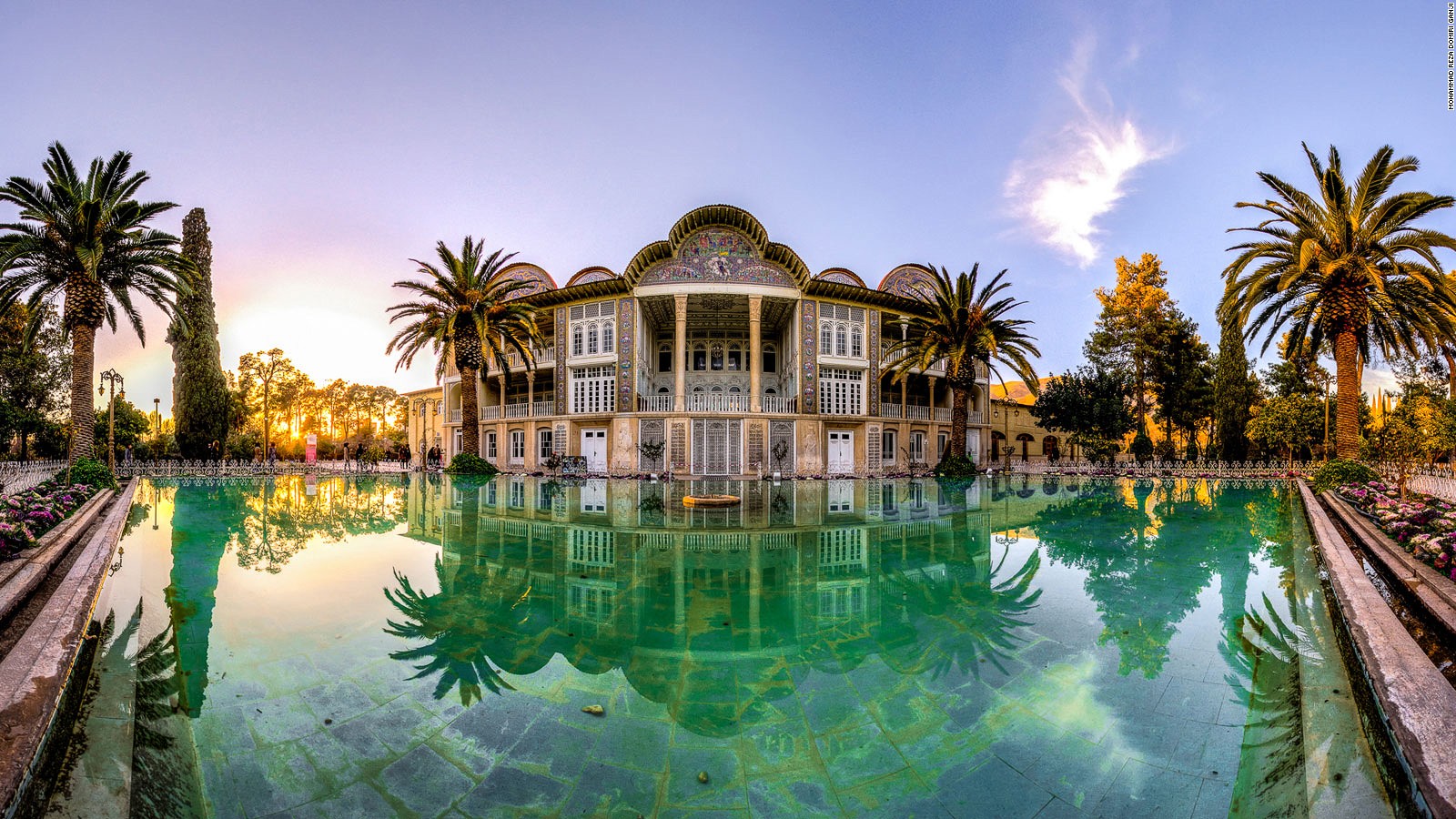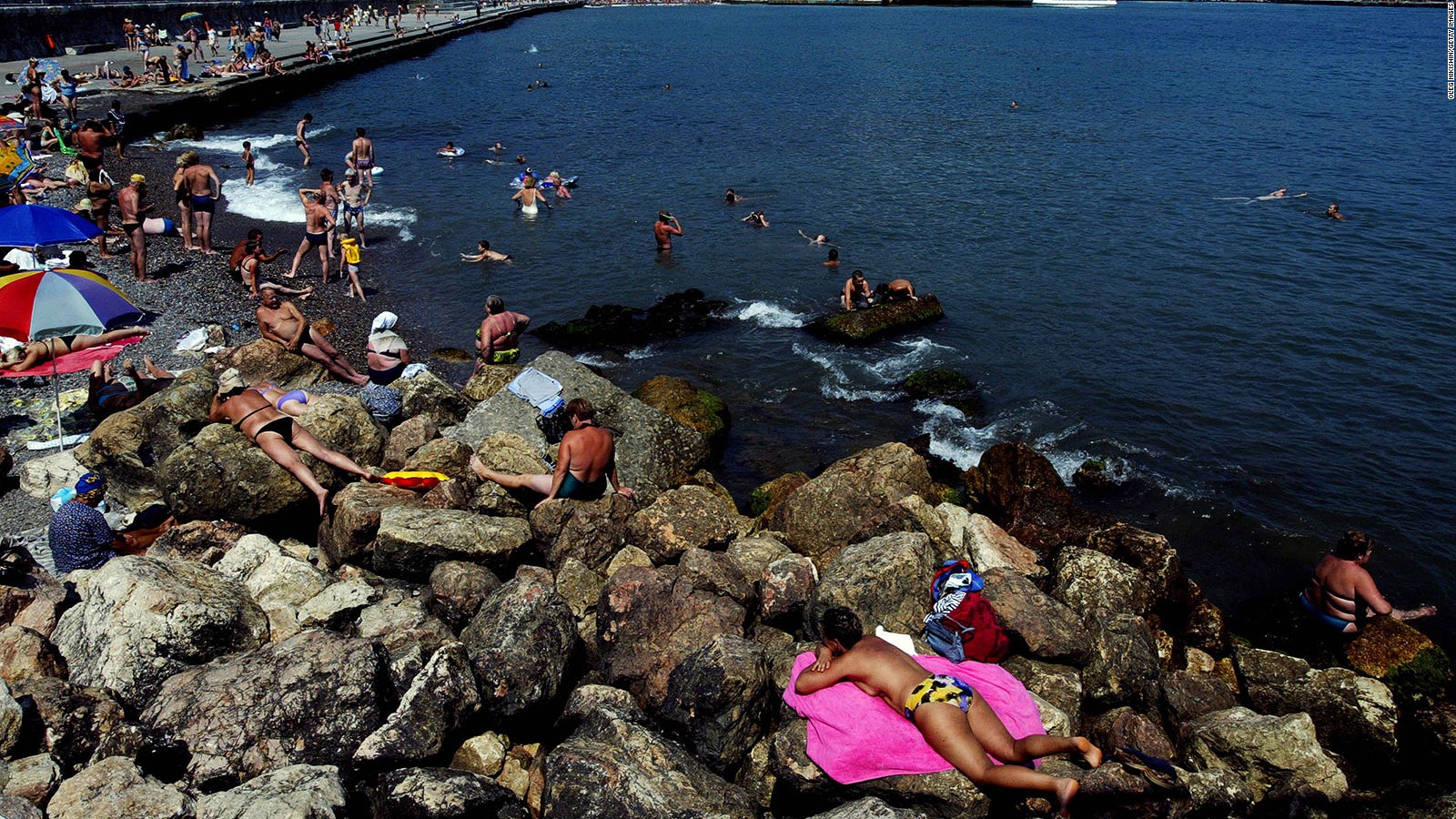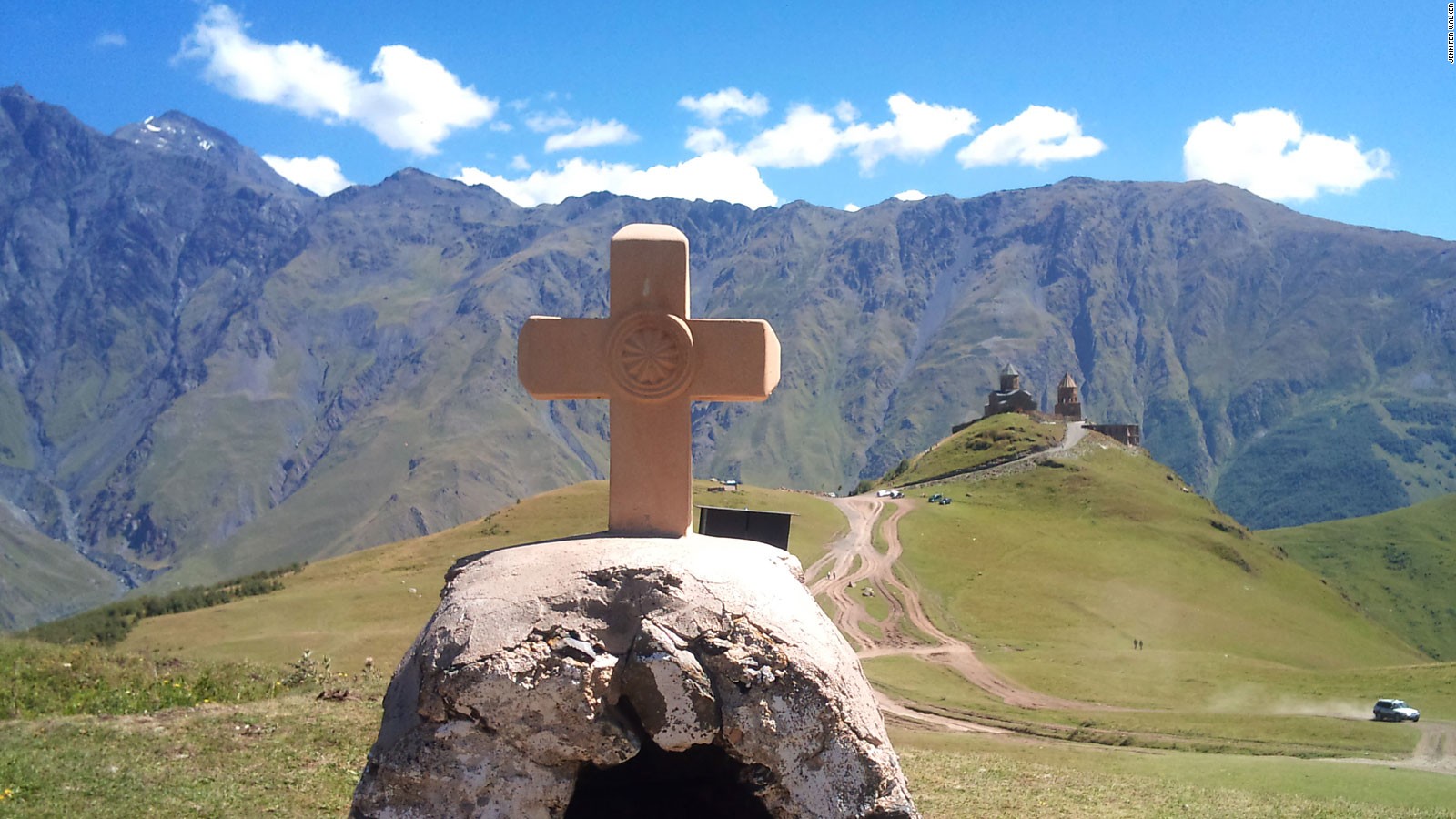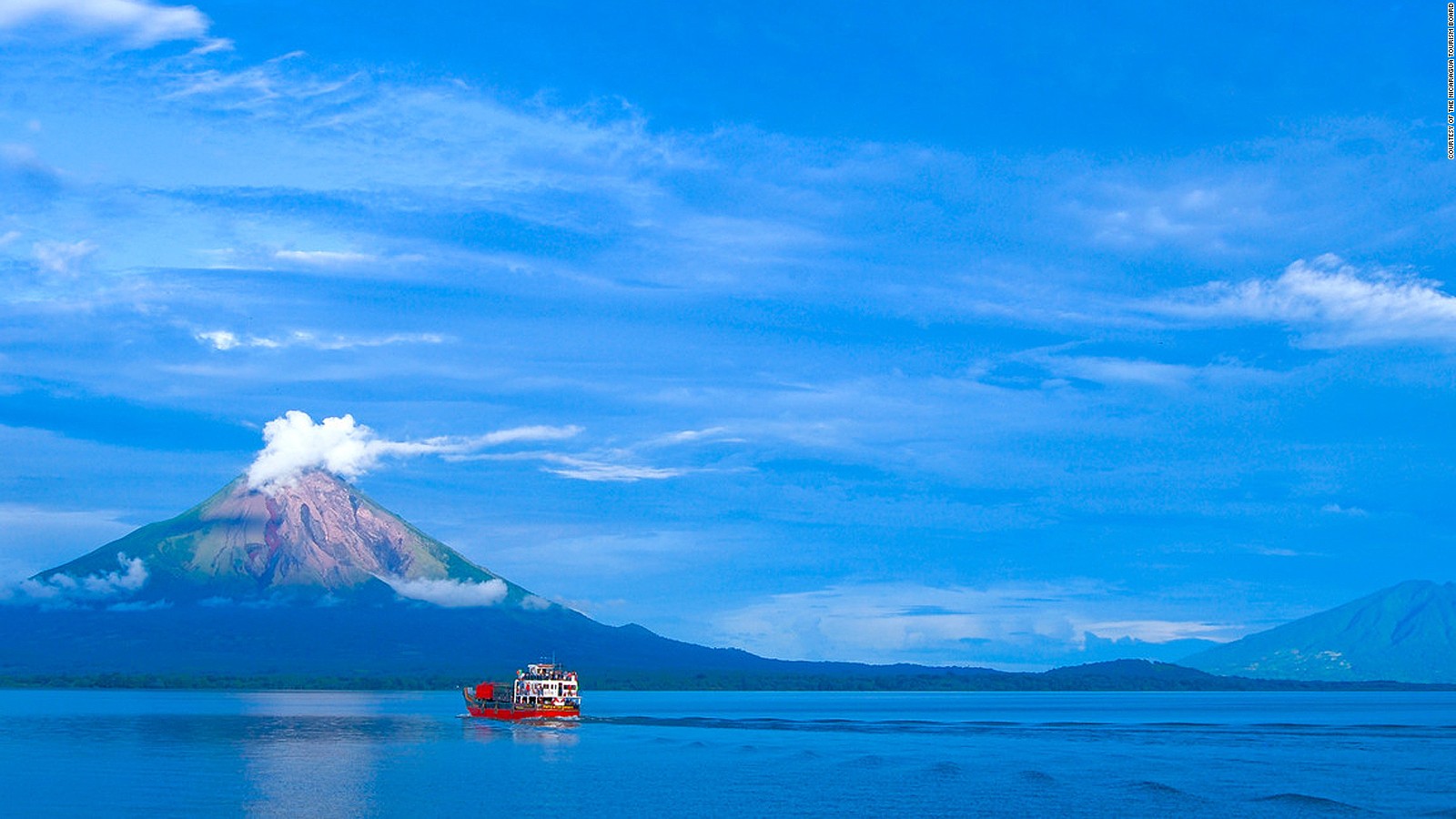
Sally Webb's children Archie 10 and Lulu 8 with ranger Amy and tracker Malusi.
The welcoming committee is right on time. We're barely off the runway when a pair of giraffes ambles into view. Soon afterwards we spy zebras followed a family of warthogs and a bunch of skittish, caramel coloured impala who leap away from the sandy track as the 4WD approaches.
Our ranger stops the van, and we pull cameras from backpacks and start snapping, forgetting that the midday sun is not the photographer's friend.
We also forget that we're going to be doing little else than driving in a safari van, looking at animals for the best part of the next three days. However, it is so extraordinary, and we are so excited, that we simply don't care.
I'm in Botswana with my husband Simon and children – Archie, 10, and Lulu, eight – fulfilling a bucket list dream: a family safari in the Okavango Delta. I'd planned a similar trip about two decades ago but a stoush with the tax man meant I had to cancel.
READ MORE:*Alexandria's elegant past*Croc and roll*Couple enjoy epic African safari*Where to see elephants in the wild
A significant birthday provided the impetus to ensure it happened this time, and we're headed for &Beyond's Sandibe camp. It's the first stop in an extraordinary trip that includes two unique and contrasting safari experiences.
OUT OF AFRICA: PLANE AND SIMPLE

Close encounters with the wildlife.
We've just flown into the remote Chitabe airstrip aboard a Cessna Grand Caravan. The single-engine 13-seater operates as a bit of a bush taxi in these parts, ferrying fortunate safari goers to their isolated camps in the heart of the Delta.
From the regional town of Maun – which from the air looks like little more than a collection of small square huts with tin roofs – it's only a 15-minute flight to Chitabe. But it's the stuff of Out of Africa fantasies, as we gaze at sandy floodplains peppered with shrubs and trees, shimmering waterholes, rivers and creeks that snake through the landscape, and the occasional grey moving dot which, we soon realise, are elephants.
For my 10-year-old son, the flight in would probably have been enough, as Mike the pilot gave him the co-pilot seat and he was allowed to press a button or two. We've barely disembarked and the plane has taken off again heading to its next stop.
Our ranger, the poetically named Gift, introduces himself, and loads our luggage into the van. By the time we reach Sandibe camp, about an hour later, we've seen many more impala, vervet monkeys, a mongoose and a family of chacma baboons.
The welcoming committee extends to the Sandibe staff, who literally sing us into camp. It's spine tingling stuff – these guys can really sing – and sets the tone for our entire stay.
Peckish after our journey, we take full advantage of the afternoon-tea spread of scones and cakes, before settling into our rooms and changing for our first safari. The children are delighted with their safari outfits. I've even found cute hats with netting that can cover their faces should mosquit oes or flies get bothersome.

Wild child: Children need to be able to follow instructions on game drives.
NATURE'S GIFTS
The Okavango is one of the best places in Africa to see elephants, and Sandibe doesn't disappoint. They are the highlight of our evening game drive with Gift and our tracker Sama who perches at the very front of the 4WD vehicle, looking for animals and their tracks.
We come across a large family group of more than 20 with babies and juveniles among them. Gift explains how you can tell whether they are stressed (tails extending straight out from the body) or relaxed (tails swinging comfortably). We also see plenty of impala, their larger cousins tsessebe, warthogs and wilderbeest.
The Phinda Private Game Reserve helps you get close to wildlife.
We pay just as much attention to creatures small as great including exquisite birds such as Burchell's starling with its almost iridescent blue feathers and our favourite, the lilac-breasted roller. The lyrical intonation with which Gift pronounces the bird's name is so appealing that long after I've learnt to recognise the pretty purple-chested creature, I continue to ask him to identify it.
As the sun goes down we stop for drinks, complete with camp table, tablecloth, glasses and a full top shelf of spirits. We've parked beside a termite mound and witness the extraordinary " marriage flight", where flying insects take to the sky ready to mate and start a new colony. The kids spend the rest of sundowners trying to trap them with their hands.
We're stopped en route to Sandibe by a cackle of hyenas lounging across the 4WD track. Untroubled by our presence they sniff around the van; one even settles beneath it. It's dark as we approach camp but we stop before we reach it, in a clearing beside a roaring fire pit, candlelit tables and a sizzling barbecue. This is tonight's dinner location, and it's exquisite. Can the world get more glorious than this? Well yes, as it happens, when the staff start singing again as we're tucking into dessert.

The Phinda Private Game Reserve helps you get close to wildlife.
BUSH TUCKER
Ad Feedback
Setting up meals in unexpected locations is something &Beyond excels at – as well as providing delicious, but not-too-complicated food, such as barbecued meats (including ostrich and kudu) and vegetable braises. The kids delight in making their own hamburgers for one lunch and pizzas for another. In six nights across two different reserves we never eat dinner in the same place twice.
The company also prides itself on the location of its camps, usually on private concessions bordering massive wildlife-rich reserves. Describing Sandibe as a camp misrepresents the beauty of its design. Nestled within a canopy of wild palms and gnarled fig trees the guest area resembles the form and features of a pangolin (or scaly anteater) with a shingled roof mimicking its scales, and one side completely open to the expansive Delta views.

Seeing a giraffe from a safari land cruiser in the Phinda Game Reserve.
The organic design continues in gorgeous guest suites, with beds framed by romantic nets, pot-bellied stoves for the cooler months, indoor and outdoor showers and private plunge pools.
Our family suite is two separate rooms connected by a long covered passageway. In their own room the kids feel far enough away to be independent but close enough to be safe. One of the benefits of travelling as a family with &Beyond and staying in one of their family suites, is you usually get your own dedicated safari vehicle, which means you can do game drives at your own pace. If the kids get tired – which they do – you can cut it short or nominate a later start if that suits you best.
CLOSE ENCOUNTERS
Next morning we get a gentle knock on the door at 5am, as Gora our butler places a tray of tea in the "valet cupboard". We dress and head to the lodge where Gift and Sama are waiting.
Safari life proves tougher on the kids than I'd envisaged. The Okavango is wild and remote, vehicles have to move slowly and as a result game drives are longer than in many other safari locations. We take a packed breakfast for the drive and are usually back at camp not long before lunch. More than once Lulu falls asleep in the back of the van, succumbing to the last vestiges of jetlag and the challenge of repeated early mornings and late evenings.
Our days at Sandibe settle into a lovely rhythm: up early, out on a drive, back for lunch and a siesta, afternoon tea, game drive, dinner. I'm brought to tears when we see a cheetah – the one animal above all others that Archie wanted to see – and can't quite believe how close we get to a group of lions � � a mother and four young adult sons.
We get so close to a young female leopard lounging in a tree that we can see her nose is a pretty pink. Gift takes the kids on a private walking safari around the camp, to look closely at tracks and climb on termite mounds.
Animal droppings, tracks and other remains tell their own stories of bush movements and survival. Gift and Sama teach the kids the difference between a leopard's prints and a cheetah's (it's all in the claws). Sama finds a hippopotamus skull and we pose for the ubiquitous photo of our own heads inside it. He fashions toy windmills for the kids out of palm fronds and acacia branches and thorns, which twirl in the breeze as we drive around, explaining that he used to spend hours making them when he was Archie's age.
There are hilarious moments when the rangers play up to the kids: a session of elephant poo soccer with kudu and zebra as the spectators, and during our morning coffee break a session of bush cricket with a palm frond as a bat and a stick and a palm berry for a ball. They teach the kids African songs too.
On our final morning we go through the list of "must see" animals and realise the African wild dogs are the major omission. But not for long. Gift heads to an area of &Beyond's concession bordering the massive Moremi Game Reserve. And there , as if out of Okavango central casting, are four African wild dogs.
On our last night we're having dinner in the firelit boma when a snuffling behind us reveals the resident hyena sniffing around. And as we finish eating the staff once again burst into song. Having learnt a few words, this time Archie and Lulu join in.
When Simon and I return to our room we find that butler Gora – who had demonstrated an unca nny ability throughout our stay to be exactly where we needed him whenever the desire for a cold drink arose – had placed a bottle of champagne in an ice bucket and marked the path to it from the door with candles and rose petals. As we leave Sandibe the following day, there is more singing: beautiful, tuneful melodies which reduce me to tears, again. In a lifetime of travel experiences there's little more magical than that.

Food at the Sandibe Okavango Safari.
PHINDA PRIVATE GAME RESERVE
The 23,000 hectare Phinda Private Game Reserve in Maputaland, in the northern part of South Africa's KwaZulu-Natal, is about three hours' drive north of Durban, just off the main N2 motorway that skirts the coast from Cape Town all the way to Swaziland.
We're not the only vehicle on the gravel road that runs through the reserve, and there are power lines next to it. There's even mobile phone reception which just feels wrong. It's the antithesis of our Sandibe arrival, and initially I'm a little disappointed.
The feeling lasts for about five minutes, until we see a huge white rhinoceros near the side of the road wallowing in a waterhole. The reserve has a renowned rhino conservation program, we learn, and this is one of the best places in Africa to see both white and, the rarer, black rhino. (Seven years earlier my husband and I had spent three days, sans children, at Ngala Private Reserve near Kruger National Park, tracking rhinos but failing to see any, so we're well aware how elusive and heavily poached they are.)
Phinda is also renowned for its diverse and distinctive habitats including sand forests, savannah and wetlands. It's a conservation success story of careful land management and restoration of former f arming country and the introduction of thousands of large mammals including elephant, lions and cheetah.
There are six lodges of various sizes including two which operate on a sole-use basis. We're staying at Phinda Mountain Lodge, the largest, catering to 50 guests, which is positioned high on a ridge with expansive savannah views. Despite its size, once again we feel a very personal touch, especially when we meet Amy our ranger and our tracker Malusi, who spend the next three days with us bringing this environment alive.

At the Phinda Mountain Lodge
We also benefit from the attention of Stephanie, the in-house child minder, who has no other charges during our stay. In fact the Mountain Lodge set up would be great for families with children younger than ours, as there are dedicated staff to look after little ones who are too small for game drives. They take the child-friendly descriptor seriously offering a dedicated kids' menu for every meal, which Lulu loves (ribs for every meal thanks) but Archie doesn't (I don't eat off kids' menus).
The kids get special Wild Child backpacks with notebooks and pencils and wildlife-spotting booklets. Amy's quick to get the measure of each of them, issuing Lulu a challenge for recording and spotting rhino and drawing pictures of all the other animals, and instructing Archie on radio etiquette.
She has them brushing their teeth with branches from the "toothbrush tree" like Zulu bushmen would, pulling teeth out of old animal skulls, and collecting bush ephemera to store in a "collection box" in their room. She has us all doing the Mexican wave over every bump in the road, and one afternoon painting the safari van in bright poster paints. She introduces Archie to a bird call app on her mobile phone so he can perfect his calls, and has us all stamping around the bush on the trail of one of Phinda's star birds, the gorgeous bushshrike.

Zulu dancers perform at the Phinda Mountain Lodge.
When you're travelling with kids it's things like this that make an indelible impression. While Archie and Lulu adored Sandibe, their engagement with the wildlife, and the game drives, lifts to another level at Phinda.
The &Beyond philosophy and business ethos – "care of the land, care of the wildlife, care of the people" is evident wherever we go.
Amy suggests we take a tour to a Zulu village not far from the reserve to get a sense of how the local people live. We meet a sangoma, or healing woman, in her traditional round Zulu house and visit a gogo – the matriarch of a family – who tells us about the traditional courtship ritual in the Zulu culture and dresses Lulu and Archie up as bride and groom. It is an extraordinary opportunity for all of us to experience a very foreign culture.
On our final morning there's not enough time for a full game drive so Amy takes us up to a special vantage point for our morning coffee instead. As the golden dawn casts its glow over the landscape, Malusi transforms from tracker to storyteller. Legend has it that where we are standing is the exact spot where Zulu chieftan King Shaka, one of the most feared warriors of his era, stood to survey his growing kingdom and divide it into the five Zulu lands. It's spellbinding stuff.
As an educational opportunity for families, African safaris are up there with the best travel experiences money can buy. You come for the wildlife and the landscape but when a safari operator does it right, it's the people who get into your soul. As we're leaving I discover in one of the guest booklets which provide information on the environment and its wildlife that in Zulu, Phinda means "the return". In our case, I hope that's true.
SAFARI ETIQUETTE: FIVE ESSENTIAL TIPS
CHILDREN What is the perfect age to take kids on safari? &Beyond doesn't automatically allow children under 12 on game drives; it's "at the lodge manager's discretion". Should kids not be able to sit quietly and follow instructions, they will be barred from game drives for the safety and comfort of everyone else. While my children, aged 10 and eight, are officially too young, I don't think we could have picked a better age to travel with them like this.
ATTIRE Wear natural colours – taupes, greens and browns. Avoid bright whites, loud colours and patterns. Not only will your photos be unmistakeably Africa, your safari vehicle will then appear to the animals as a single object and they are less likely to bolt. Make sure you travel with a broad rimmed hat, ideally one you can tie under your chin to avoid it blowing off.
TRANSPORT If you are sharing a vehicle with others make sure you are ready at the nominated time or you'll make everyone miss out. Most camps will provide family groups staying in Family Suites with a dedicated vehicle which means you can go more at your own pace.
TIMING Game drives take place in the early morning and evening. Take advantage of siesta time, in the middle of the day. Kids especially will need the rest so they can stay awake for the evening drive, then get back to the lodge and sit through dinner.
WILDLIFE If you see one of the major predator animals – lions, leopards, buffalo, rhino, elephant, cheetah – sit very still and keep quiet. Don't yell or stand up, which could startle the animals. Always follow your ranger's instructions; it's his or her job to keep you safe.
FIVE MORE TIPS FOR A SAFE SAFARI
DON'T GO IT ALONE Unless you're a South African who's grown up in the bushveld don't even think of organising your safari independently. There are two many variables that could go wrong, especially when travelling with kids, so use a good operator.
ONCE BITTEN... Before you leave, speak to a travel doctor or GP about the risk of malaria and other insect-borne diseases, medications and measures you can take to avoid being bitten. Use strong DEET repellent and reapply it often; wear long-sleeved shirts and long pants, ideally made from an anti-mosquito fabric (outdoors and fishing/camping stores sell them).
BUZZ FACTOR The malaria risk varies throughout Africa. Botswana has a medium risk of malaria, although if there's a lot of water there'll be lots of mozzies and drought conditions mean there are fewer. KwaZulu-Natal has a low malaria risk but mosquitoes are more common in the summer/rainy season. East Africa has an even higher risk.
SNAP TO IT In photographic terms, the bigger the better. This is the time to travel with that whopping great lens. Consider taking a monopod to steady it when shooting. Take extra memory cards – you will go mad – and try to download and edit a bit every day.
FENCE ME IN Even on private game reserves most bush camps are unfenced, which means animals can roam freely, so you have to be accompanied by an armed guard if you walk anywhere at night. It's for your own safety, so follow the rules.
- Stuff
Source:
Family holiday in Africa: How to survive a safari with kids
 1 Sydney: 4,000 new millionaires. Total: 95,400 (4% increase)iStock
1 Sydney: 4,000 new millionaires. Total: 95,400 (4% increase)iStock 2 Melbourne: 3,000 new millionaires. Total: 66,800 (4% increase)iStock
2 Melbourne: 3,000 new millionaires. Total: 66,800 (4% increase)iStock 3 Tel Aviv: 2,000 new millionaires. Total: 29,000 (6% increase)iStock
3 Tel Aviv: 2,000 new millionaires. Total: 29,000 (6% increase)iStock 4 Dubai: 2,000 new millionaires. Total: 42,000 (5% increase)iStock
4 Dubai: 2,000 new millionaires. Total: 42,000 (5% increase)iStock 5 San Francisco: 2,000 new millionaires. Total: 129,000 (2% increase)iStock
5 San Francisco: 2,000 new millionaires. Total: 129,000 (2% increase)iStock 6 Vancouver: 2,000 new millionaires. Total: 25,300 (8% increase)iStock
6 Vancouver: 2,000 new millionaires. Total: 25,300 (8% increase)iStock 7 Seattle: 1,000 new millionaires. Total: 19,600 (5% increase)iStock
7 Seattle: 1,000 new millionaires. Total: 19,600 (5% increase)iStock 8 Perth: 1,000 new millionaires. Total: 28,000 (4% increase)iStock
8 Perth: 1,000 new millionaires. Total: 28,000 (4% increase)iStock 
 Chris Hart, former Standard Bank economist
Chris Hart, former Standard Bank economist


